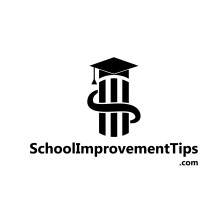
- Be varied in your observations. Try not having a set pattern. Conduct some announced and some unannounced visits. Different time periods of the day and different days of the week will allow for snapshots that can be pieced together to give a whole picture. Observations should not always be the in early morning period or last period of the day or the one right after lunch. Each class period and content can be very different from the other.
- Do pop-ins. Observations don’t always have to last a long time. Sometimes a five minute visit can give you great information. I’ve found that leaving a sticky note for the teacher with some brief feedback or encouragement is always appreciated.
- Develop a chart or grid where you (and your assistants, if applicable) can record what time or period you observe.
- You don’t always want to observe the advanced class or the remedial class (if your school is set up this way).
- How do you eat an elephant?… one bite at a time. After making your expectations clear to faculty and staff members, then make sure you start making regular observations weekly. You might even want to review the status of your observations each week. Making the required minimum number of observations can sometimes be a challenge with all the other responsibilities of being a principal. Immediate feedback is greatly appreciated. Make it a priority to make time for the write-up of the observations and, if needed, the follow-up conversation. I like the term “reflections” for these meetings.
- Do several observations in conjunction with your assistants, if possible. If not, perhaps you could collaborate with another principal in your division. The purpose of this is to see if all of the administrators are “on the same page” when it comes to expectations and what type of oral or written feedback is provided.
- Be fair to teachers with your observations. Pop-in so frequently that it’s not a special time. You don’t want to “grade” a teacher on just one observation, especially if it happens to be a bad day or their worst day. You wouldn’t want to be judged on just one bad observation.
- Remember that the most common time for things to “go wrong” is when you are being observed. Nerves are already on edge and mistakes will happen. Make sure that your teachers do not feel judged.
- Involve yourself in what’s going on in the classroom when you can. Ask students questions; “What topic are we learning today? Can you show me what you are working on?”… This can help put everyone at ease when you walk into the room
These are only some of the considerations to think about when doing observations. Do you have additional ones? Do you agree or disagree with this list? I would love to hear your thoughts. How you give feedback is also vital. More to come on that topic.
A Question For You To Think About: If a teacher is having a bad day and does not seem to be on top of their game, should you give a second chance before writing up their observation?



